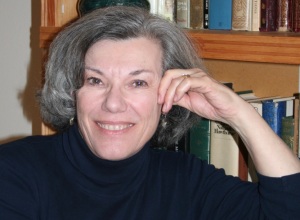I grew up in “Small Town America”, Stigler, Oklahoma, located some sixty miles west of Fort Smith, Arkansas. During the ‘60s, It was a wonderful place to grow up. And, generally, it was a good place to start one’s education. In high school, when it came to scholastics, I qualified as a “good” student in a class of incredibly smart kids. I made straight A’s except English and typing. English was my nemesis. My writing skills were just awful. In fact my mother, who later became the first woman president of the local school board, would check over my work once in a while. When it was an essay or some from of writing, she would hand it back and say, “You need to re-write it from scratch. It makes no sense.” In elementary school I did well because I could spell, well, kind of spell. You see, I would bribe my younger brother to help me prepare for spelling tests. I would run a nice warm bath, lay back, place a warm, wet washrag over my upper face, and relax while Vel tested me, over and over. I became a very accomplished memorizer and made B’s. In high school my sentences rarely made sense. Creative thoughts and ideas? I had plenty. Put them on paper? Bad news. This flaw dogged me long after graduating from Stigler High School and almost cost me my career.
Overcoming my writing skills would become a turning point in my life.
After completing my Masters, I received an enticing call from one of the world’s largest financial auditing firms and I became a management consultant. Consulting was about helping business leaders be more productive and profitable. I loved it and knew it would be my lifelong, dream occupation.
Then reality set in. After three years of consulting, I was up for promotion.
During our annual evaluations my boss set me down and said: “Jay, you are a good consultant. Clients love you, but your report writing skills are horrendous. We wouldn’t dream of having you write a proposal. I don’t see any way you’ll ever be promoted with your writing skills. We want to find you a good leadership position with one of our clients.”
Obviously crushed, I couldn’t argue the facts. Still, I loved this work, and I was determined to succeed. After two sleepless nights and heart-searching days, I returned Monday and said I wanted to stay for one more year and show what I could do to improve my writing skills. Management agreed. They had no problem using my consulting skills for another year, but had no faith that I would ever be promoted.
I enrolled in a nonfiction-writing course at Tulsa Junior College. Taking the challenge seriously, I worked hard. Next, I took a fiction course. I figured what the heck, half of our proposals are nearly fiction anyway; it might help. My writing improved. In a statewide contest I won an award for my short story. The next year I won again for a memoir about my youngest son’s birth.
That’s when Linda Christy, a writer’s club member, approached me. She discovered that Prentice Hall, one of the world’s largest publishers, wanted books about computers, especially microcomputers. For my PhD thesis, I designed and built a microcomputer from scratch. Ok, it was a well-designed bird’s nest, but I learned microcomputers inside and out. Working with Linda, I discovered that I could write and make sense. I had learned that my thought processes overran my writing skills and that I needed to think through my ideas, then take the time to construct the message. This new process was difficult for me at first, but we had fun writing the book, and when we sent the completed manuscript to Prentice Hall, they bought it.
The ABCs of Microcomputers was a best seller. Reviews described the book as a clear presentation of new technologies, easy to read and understand. Because of the clarity of the writing, high schools all over the US, the book became a book-of-the-month club selection. After being translated, it also sold well in Asia and Europe. Ok, so it was simple basics, and in today’s world a third grader knows more than what we discussed, but in those early days of personal computers, it was a hit. After such success, I wanted to do a professional series on managing a company’s computer resources. I wrote a proposal for a four book series, and Prentice Hall bought the idea.
About this time, a talented newcomer to Arthur Young’s consulting group, Dave Bonner, expressed an interest in eventually retiring to teach college and write books. I suggested he join me in writing the four books. We made a good team while collaborating on a methodology for buying software. Teaching is the best way to learn, and I learned from Dave while applying many of my new writing skills. We wrote How to Find and Buy Good Software, and the book was more successful than the ABC’s book. The topic was more professional, the writing was very good and our presentation made a difficult topic simple. Next Dave and I wrote Up and Running, An Implementation Cookbook which was equally successful. Soon I found myself traveling around the country speaking on Technology Trends.
I loved the new experience. Speaking to a large, well-educated crowd required the same basic skills as writing clear and dynamic stories. I would speak on how the microchip shrank in size every year while costs were dropping like a rock. (This is the early 1980s.) I predicted within ten years microchips would be found in everything electronic. Every home would have at least one computer, maybe three or four, and every office desk would include a microcomputer. People chuckled. Next, I predicted microchips would soon appear in our watches, control our cars, and even monitor our life systems from within our bodies. People laughed. No one believed me, but they enjoyed the colorful images I created, and they laughed at my stupid predictions.
One evening, in Bartlesville, Oklahoma, I spoke to a local CPA organization. After the speech the Chief Financial Officer of Phillips Petroleum asked me to give the same presentation to the Phillips’ executive team. Arthur Young (now Ernest and Young) was engaged to deliver the presentation to every employee of Phillips, worldwide.
I spent a year in night school learning the rules of writing, learning how to organize and clearly communicate ideas, and practicing every day and every night. In the end, Linda and I wrote a very successful non-fiction book and some twenty magazines articles. I wrote two award winning short stories. Dave and I created two well-organized, well-written, and highly successful books. As a result of my new writing skills, my glaring flaw had become a major asset, and I was promoted to Manager!
In high school, I showed no interest in English or writing. I saw no application for writing skills as a mathematician or scientist. I failed to recognize an important truth: Communication skills, written and verbal, are essential for any human endeavor, great or small.
I’ll never regret the effort I had to make. I almost lost my career path because I had creative ideas that could not be communicated without clear, logical writing. In the end, attacking my glaring weakness head-on allowed me to continue my career while writing became a corner stone to my future both in my chosen occupation and in my personal life.
This is an extract from one of Jay’s works-in-progress titled Love’s Fate; Growing Up in Small Town America. Jay Curry’s latest work, Nixon and Dovey; the Legend Returns, is a full length novel about Nixon Curry, Jay’s great-great-great-great uncle who was arguably the most notorious and widely publicized criminal in America’s first forty years. Nixon and Dovey is available on most e-readers.












































